People
Principal Investigators
Hanns Holger Rutz (GMPU Klagenfurt) Project Lead and Artist-Researcher. Works in sound installation, improvisation and electronic music, spanning two decades, having extended to other digital (image, video) and non-digital media in the past decade. Most of his installations have been created in collaborative contexts, and he has worked in several interdisciplinary projects (e.g. with choreographers, writers, visual and video artists). He has developed several group projects, such as the digital art parcours Algorithmic Segments. He obtained a PhD in Computer Music studying the temporality and observation of composition processes in sound art. His previous FWF PEEK project Algorithms that Matter is strongly related to this work, with many aspects finding continuation in simularr, such as trans-individual agency, materiality and reciprocation of the artistic work process, and forms of notation and knowledge creation in artistic research. With simularr, he continues his research, introducing a major perspective shift towards human-human relationality. Rutz is Professor for Artistic Research at the Gustav Mahler Private University for Music (GMPU) Klagenfurt. www.sciss.de
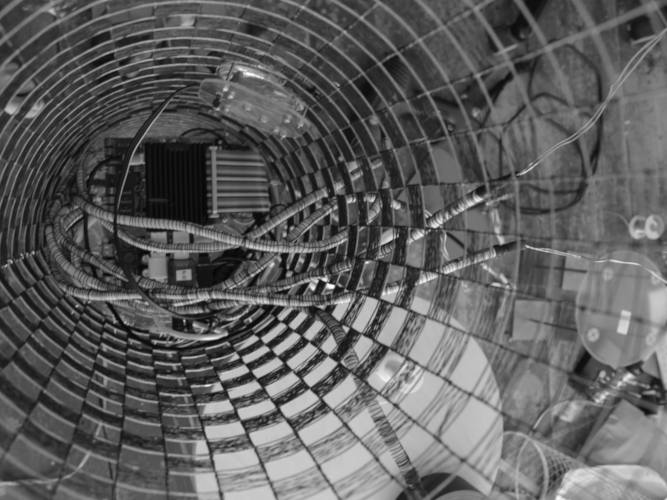 Hanns Holger Rutz ©
Hanns Holger Rutz ©
Nayarí Castillo (ISD, TU Graz) Artist-Researcher. Specialised in installation art and art in public space, her often site-specific interventions engage with history, time and space, with emphasis on experiments in perception and engagement. With more than two decades of artistic experience, including personal, academic and big-scale transnational projects, Castillo has been involved as artist, curator, project leader, and artistic researcher at all levels of project development. She was responsible for coordinating the Austrian chapter in the EU project MAST - Master Module in Arts, Science and Technology, devoted to the introduction of social values (solidarity, collaboration) in the TU Graz curriculum through different spatial experiments. She was faculty at EU project Adriart and artist-researcher in the EU project Iterations. The work on process-oriented development is rooted in her background in applied sciences as a molecular biologist. She received several awards, most recently the Promotional Award of the State of Styria for Contemporary Fine Arts 2019. www.nayaricastillo.com
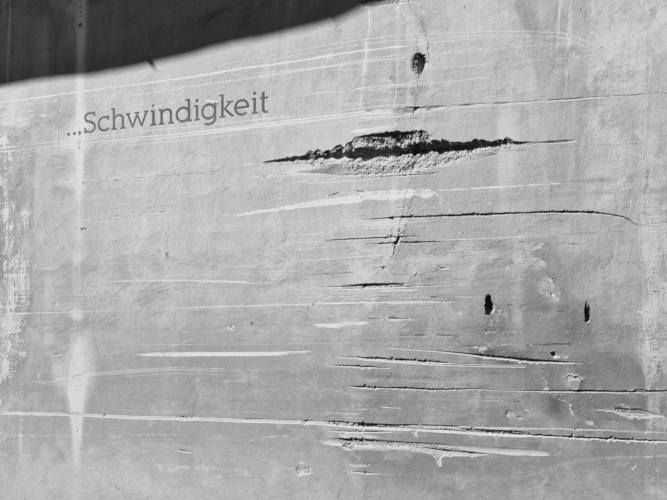 Nayarí Castillo ©
Nayarí Castillo ©
Franziska Hederer (ISD, TU Graz) Architectural Researcher. An expert in spatial perception and experimental design, she works in the cross-over domain of art, architecture and urbanism, focusing on the exploration of artistic practices, especially the performing arts, as tools for spatial perception and for sensitising the understanding of space. Hederer is Associated Professor at the Institute of Spatial Design and serves as Deputy Head. Her habilitation treatise “On the oscillating boundaries of architecture_tools for spatial perception” provided the venia docendi in 2015. In simularr, she will focus on the design of spatial circumstances that foster simultaneity. Research Profile
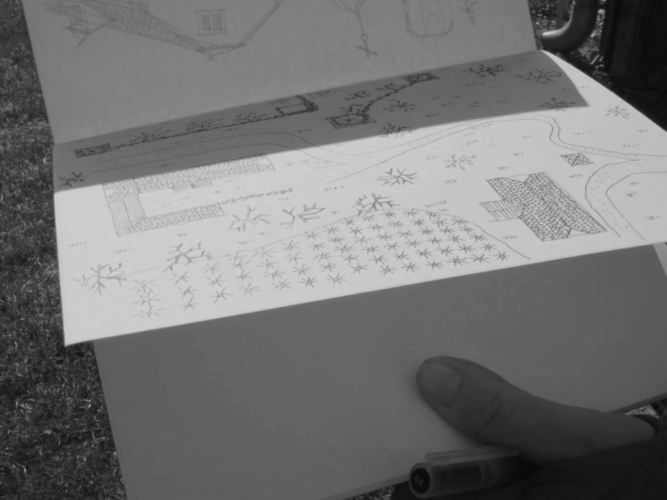 Franziska Hederer, photo © Alisa Kobzar
Franziska Hederer, photo © Alisa Kobzar
Research Associate
Daniele Pozzi (GMPU Klagenfurt) is a sound artist and electronic musician. Among his works are live performances and improvisations, sound installations and electroacoustic music, often involving the design of original computer programs and interfaces addressing compositional or performative issues. He investigates the relation of process and form in feedback practice, and the becoming of sound and algorithmic processes. Pozzi holds a BA in Electroacoustic Music Composition from the Conservatory of Padua, IT, and a MA in Computer Music from the Institute of Electronic Music and Acoustics (IEM) of the University of Music and Performing Arts Graz (KUG). He is currently pursuing his doctoral degree at KUG, and working as University Assistant for Artistic Research at GMPU Klagenfurt. www.danielepozzi.com
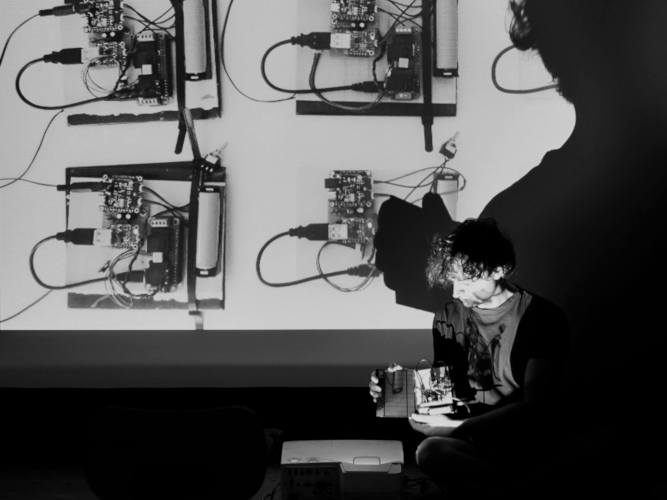 Daniele Pozzi, photo © Katharina Hauke
Daniele Pozzi, photo © Katharina Hauke
Incoming Artists-Researchers
Andrea Bakketun (NO) has an artistic practice characterized by transformation and movement, unfolding through video, installation and text. In her work she is looking at the relationship we have to land, nature phenomenons and other living organisms. Monumental soap sculptures, pump systems, video collages, guided tours and kinetic sculptures — Bakketun’s work operate in a rich spectrum of materials and media. The fragile and perishable in the relationship between subject and object often is examined and distorted in order to shake up established systems and our understanding of the world. Bakketun has her MFA from the Academy of Fine Art in Oslo (2013). In 2012 she curated «Five thousand generations of birds», a project where 16 artists where invited to work and exhibit on their own islets. Her recent shows include «A Guide for the Giant Body» at Centralbanken (Oslo), «Establishment and Maintenance…», Volt (Bergen) and «Stedet som ruller…», the Wetland Pavilion (Oslo). www.andreabakketun.net
 Andrea Bakketun, photo © Carsten Aniksdal
Andrea Bakketun, photo © Carsten Aniksdal
Ludvig Elblaus (SE) is a composer, musician, teacher and researcher. Working with computational and electroacoustic materials, he explores practices of contemporary music in the form of concerts, installations, and fixed media work, as well as contributions to collaborative larger works in several traditions, e.g. opera, theatre, and dance. His artistic practice involves generative tools, coupled complex systems, modelling as an artistic practice, the site-specific, emergence, and experiential aspects of very slow and drawn out temporal structures and deep listening. This work relies on custom software development for algorithmic composition and signal processing. Elblaus holds a doctoral degree in Sound and Music Computing from the KTH Royal Institute of Technology in Stockholm. Recent collaborations include the networked music ensemble “End of Text”, the artistic duo “utrumque”, the biometric music ensemble “LPJ-L”, and artistic residencies at IEM in Graz, and ICST in Zurich. www.ludvigelblaus.com
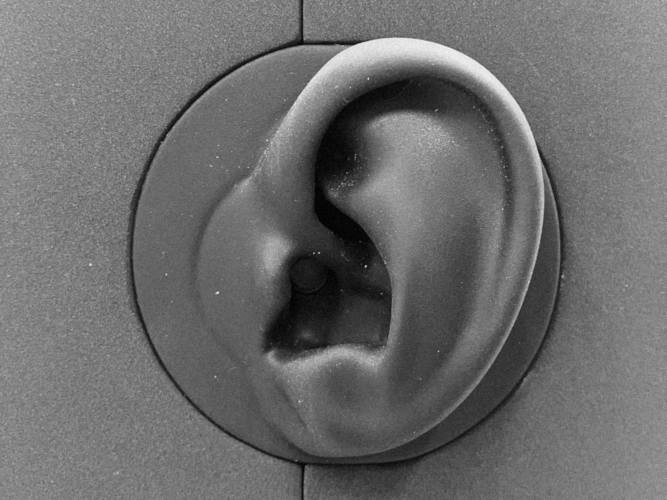 Ludvig Elblaus ©
Ludvig Elblaus ©
Elena Redaelli (IT) creates projects that seamlessly exchange with the environment and the public. She employs a combination of research and production techniques to create public art, site-responsive, and environmentally conscious works characterised by extensive manual labour, craft techniques, and organic processes. She explores the transformation, generation, and decay of matter and challenges the boundaries of authorship and active intervention, applying fluid methods where improvisation and exchange encourage the interplay of different species, animate and inanimate beings. Redaelli is passionate about making and values ancient practices such as hand-weaving, knitting, crocheting, felting, embroidery, and paper-making. She is also committed to environmental sustainability, researching and promoting the use of natural, recycled, and local materials. With a Master of Fine Arts from UCA in London and an MA in Sculpture from the Academy of Fine Arts, Rome, Redaelli has developed her practice through art residencies, site-specific projects, and symposiums worldwide. elenaredaelli.com
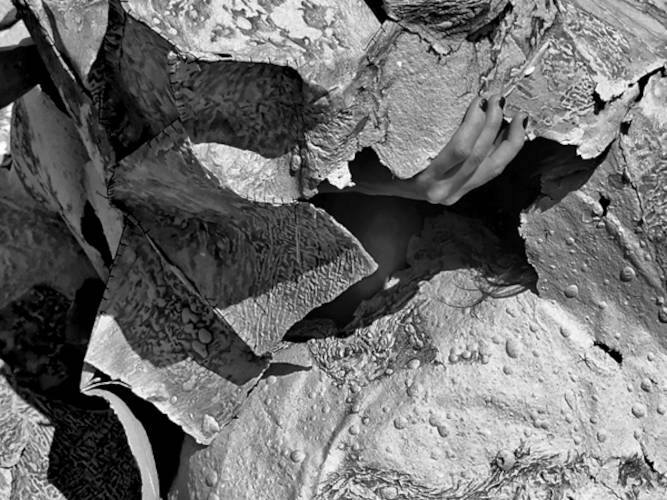 Elena Redaelli ©
Elena Redaelli ©
Charlotta Ruth (SE/AT) plays with time and perception inside choreography and ludic systems. Her practice takes a media independent but site and context specific approach ranging between stage, gallery, public space, writing, institutional in-between spaces, games, video and online. Her work has been co-produced by for instance MDT and Dansens Hus in Stockholm, Tanzquartier, brut, WUK, Brunnenpassage and City Games Vienna. She is educated at the Royal Swedish Ballet School, holds a MFA in choreography from Stockholm University of the Arts, regularly collaborates as a performer with other artists and teaches internationally. Since 2017 Ruth is associated with the University of Applied Arts Vienna, where she concluded her PhD in Arts (2022) and currently co-leads the research projects WITHDRAWING THE PERFORMER with Jasmin Schaitl (INTRA) and Archives in Practice with Olivia Jaques and Marlies Surtmann (INTRA) as well as contributes to Outer Woman / Cordula Daus (Elise-Richter PEEK/FWF). charlottaruth.com
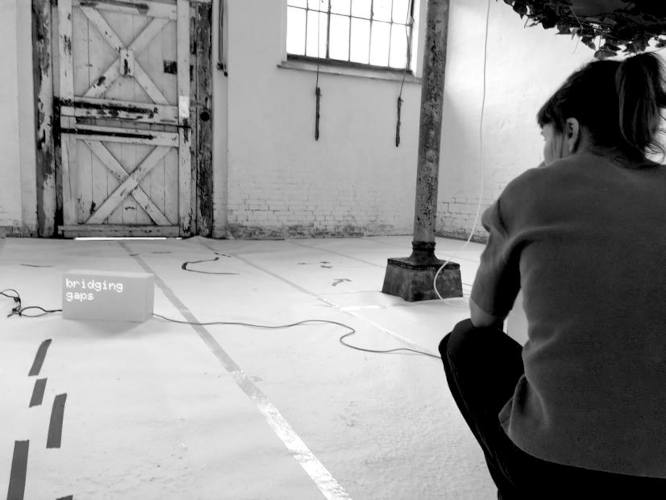 Charlotta Ruth, photo © Johannes Burström
Charlotta Ruth, photo © Johannes Burström
Fulya Uçanok is an electroacoustic musician and pianist; composing and improvising. Her work takes forms of composition, score-based or improvised performance, and artistic research. She works with everyday objects, acoustic pianos coupled with a variety of objects (utilizing inside-piano technique), electronic processing, generated electronics, and field recordings. She completed her Ph.D. at the Sonic Arts Department of Center for Advanced Studies in Music – Istanbul Technical University. Her dissertation is titled “Towards a Response-able Com-position Practice: Entangling with Humans, More-than-humans and Materials”. Her interest lies in sympoietic, response-able sonic practices with humans, more-than-humans, and physical materials (musical instruments). Currently her practice focuses on instrument-human collaborations, through new materialist and feminist strands of thought. She investigates interfaces of relation within social sound engagements focusing on embodied explorations for listening, performance and composing, weaving theoretical, sensory, and movement-based forms of thinking and expression into the sonic process. www.fulyaucanok.com
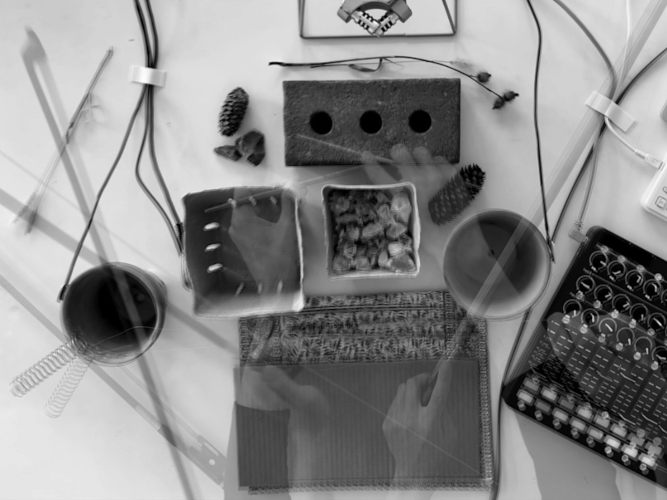 Fulya Uçanok ©
Fulya Uçanok ©
Facilitators
Susanne Bosch is an artist, artistic researcher and process facilitator, with a PhD on participatory public art from UU Belfast. She works in international public art projects. As an ‘interface activist’, she deals with long-term questions on concepts of democracy and sustainable futures, including work on social visions and models of participation, money and migration. She is currently studying systemic sustainability management at the Eberswalde University for Sustainable Development. www.susannebosch.de
Emma Cocker is a writer-artist based in Sheffield and Associate Professor in Fine Art at Nottingham Trent University. She focuses on models of (art) practice and subjectivity that resist the pressure of a single, stable position by remaining wilfully unresolved. She was artistic researcher at the Research Pavilion, Venice (2019), invited key researcher in Choreo-graphic Figures (2014–2017, PEEK), and invited critical interlocutor in Weaving Codes—Coding Weaves (2014–2016, AHRC). Not Yet There
Caroline Gatt is an anthropologist and performer focusing on ontological politics, laboratory theatre and song, co-design, and collaborative processes. Her publications include ethnographic and theoretical texts, practice-based multimodal essays, and experimental and collaborative projects exploring the potentials of printed ‘books’. She is Senior Postdoc at the Institute of Cultural Anthropology and European Ethnology of the University of Graz and Co-Investigator on the FWF project ‘(Musical) Improvisation and Ethics’. kfunigraz.academia.edu/CarolineGatt
Advisors
Azra Akšamija is an artist and architectural historian, Director of the MIT Future Heritage Lab and Associate Professor in the MIT Department of Architecture, Program in Art, Culture and Technology. Akšamija investigates the politics of identity and cultural memory on the scale of the body and within the context of history and globalisation. Her work has been exhibited at leading international venues such as Secession Vienna, Manifesta 7, and 17th Venice Biennale of Architecture. www.azraaksamija.net
Gerhard Eckel is a composer, sound artist and Professor of Computer Music and Multimedia at KUG Graz. He has led the FWF projects Embodied Generative Music (TRP), The Choreography of Sound (PEEK), and Transpositions: Artistic Data Exploration (PEEK). Currently he is leading the FWF PEEK project Inter_agency. He is professor affiliate at the KTH Royal Institute of Technology, visiting professor at the Royal College of Music in Stockholm, and member of the duo utrumque. eckel.name
Concha Jerez is an intermedia artist who focuses on site specific works, extending since the 80s to Performance Art, and since the 90s to InterMedia concerts with co-authorship of José Iges for festivals such as Ars Electronica. Between 1991 and 2011 she was Professor of the Faculty of Fine Arts at the University of Salamanca. In 2011 she received the Medalla de Oro al Mérito en las Bellas Artes, and in 2015 the National Prize of Visual Arts from the Spanish Culture Ministry. conchajerez.net
Alexander Lehnerer is an architect and teacher. Before his appointment as Professor in Graz, he was Assistant Professor at the ETH Zürich and at the School of Architecture in Chicago. He designed the German Pavilion in Venice in 2014; his books include “Grand Urban Rules” (NAi010 2009/2014), “The Western Town” (Hatje Cantz, 2013), and “Bungalow Germania” (Hatje Cantz, 2014). He holds a doctorate from the ETH Zürich, a master’s degree from UCLA, and a diploma from TU Berlin. www.alexlehnerer.com
Robin Minard is a composer and installation artist. Since the early 1980’s his work has focused in the area of electroacoustic composition and sound installation art. From 1997 to 2021 he was professor for electroacoustic composition and sound art at the University of Music Franz Liszt and the Bauhaus University in Weimar, where he was also director of the Studio for Electroacoustic Music (SeaM Weimar). His works have been presented in festivals, museums and public spaces worldwide. robinminard.com